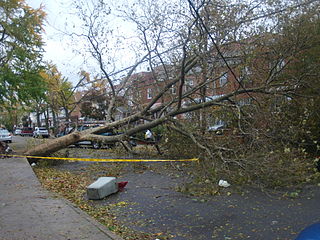
St. Francis de Sales discusses how to maintain balance in one's soul in the face of disruptive changes in life.
The following excerpt, from Chapter XIII of St. Francis de Sales’ Introduction to the Devout Life, provides insight on how a Christian can deal with natural disasters such as last week’s hurricane Sandy. The below reading is a preparation for tomorrow’s “Living Jesus Chat Room” discussion, to be held at 7:30 PM Eastern Time at the above linked page. If you are new to the chat room, sign up as a guest during the chat.
CHAPTER XIII. Of Spiritual and Sensible Consolations, and how to receive them.
THE order of God’s Providence maintains a perpetual vicissitude in the material being of this world; day is continually turning to night, spring to summer, summer to autumn, autumn to winter, winter to spring; no two days are ever exactly alike. Some are foggy, rainy, some dry or windy; and this endless variety greatly enhances the beauty of the universe. And even so precisely is it with man (who, as ancient writers have said, is a miniature of the world), for he is never long in any one condition, and his life on earth flows by like the mighty waters, heaving and tossing with an endless variety of motion; one while raising him on high with hope, another plunging him low in fear; now turning him to the right with rejoicing, then driving him to the left with sorrows; and no single day, no, not even one hour, is entirely the same as any other of his life.
All this is a very weighty warning, and teaches us to aim at an abiding and unchangeable evenness of mind amid so great an uncertainty of events; and, while all around is changing, we must seek to remain immoveable, ever looking to, reaching after and desiring our God. Let the ship take what tack you will, let her course be eastward or westward, northern or southern, let any wind whatsoever fill her sails, but meanwhile her compass will never cease to point to its one unchanging lodestar. Let all around us be overthrown, nay more, all within us; I mean let our soul be sad or glad, in bitterness or joy, at peace or troubled, dry and parched, or soft and fruitful, let the sun scorch, or the dew refresh it; but all the while the magnet of our heart and mind, our superior will, which is our moral compass, must continually point to the Love of God our Creator, our Saviour, our only Sovereign Good. “Whether we live, we live unto the Lord, or whether we die, we die unto the Lord; whether we live therefore or die, we are the Lord’s. Who shall separate us from the Love of Christ?” (Rom. xiv. 8, and viii. 35.) Nay, verily, nothing can ever separate us from that Love;—neither tribulation nor distress, neither death nor life, neither present suffering nor fear of ills to come; neither the deceits of evil spirits nor the heights of satisfaction, nor the depths of sorrow; neither tenderness nor desolation, shall be able to separate us from that Holy Love, whose foundation is in Christ Jesus. Such a fixed resolution never to forsake God, or let go of His Precious Love, serves as ballast to our souls, and will keep them stedfast amid the endless changes and chances of this our natural life. For just as bees, when overtaken by a gust of wind, carry little pebbles to weight themselves, This notion seems to have arisen from the habits of the solitary mason bee, which early writers did not distinguish from other bees. in order that they may resist the storm, and not be driven at its will,—so the soul, which has firmly grasped the Unchanging Love of God, will abide unshaken amid the changes and vicissitudes of consolations and afflictions,—whether spiritual or temporal, external or internal.
Read further on in this essay, in Chapter XIII, in which St. Francis discusses the proper role and use of interior sweetnesses and consolations of the soul.